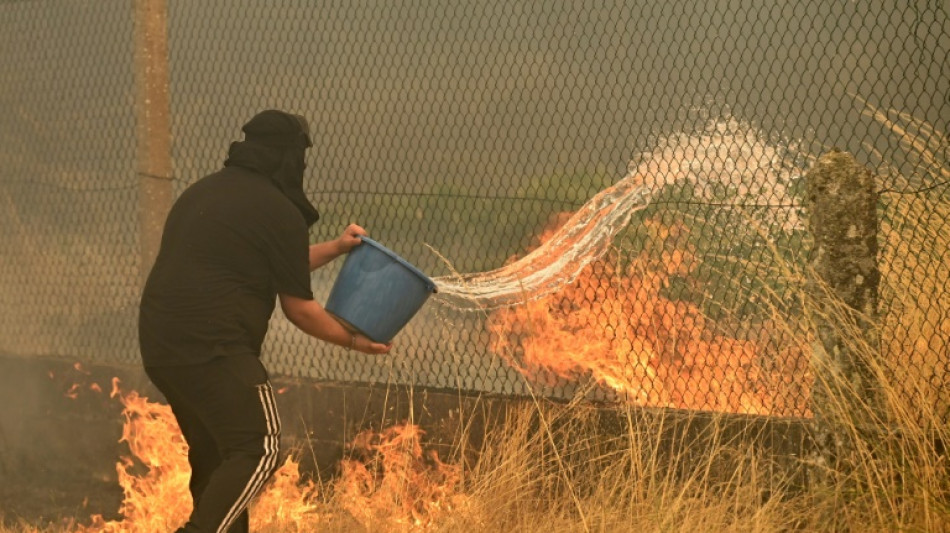
Spain on heat alert and 'very high to extreme' fire risk

All of Spain was on heatwave alert on Friday, while the weather agency warned that much of the country was at "very high to extreme risk" from wildfires.
The situation had improved for several other southern European countries, but Greece was still fighting fires on one Aegean island.
Much of Spain has already endured nearly two weeks of high temperatures, and on Friday the searing heat spread to Cantabria, which had so far been spared.
Temperatures in the northwestern region were forecast to pass 40C, said Aemet, the national weather agency. The risk of fires on Friday and over the weekend into Monday was "very high or extreme in most of the country", it added.
Spain has endured a devastating season of fires, with 157,501 hectares (389,193 acres) reduced to ashes since the start of the year, according to the European Forest Fire Information System (EFFIS).
Yet that figure is still well short of 2022, when more than 306,000 hectares went up in smoke.
Three people have died during the fires, including two young volunteers in their thirties who lost their lives trying to put out a fire in the Castile and Leon area.
One of them, Jaime Aparicio Vidales, was buried in the town of Quintanilla de Florez, Zamora province, Castile and Leon, on Friday.
- 'Nothing left to burn' -
On Thursday morning, France sent two water-bombing planes to help try to douse the flames in the northwestern region, where a dozen fires were still raging.
The railway line between Madrid and the northwestern region of Galicia remained closed as well as some 10 main roads in the country.
Marco Raton, 35, works on a pig farm in Sesnandez de Tabara near one of the fires in Castile and Leon that forced several thousand people to flee their homes.
He said he and his friends did not think twice when they saw the fire arrive on Tuesday and grabbed "everything we had -- backpacks, fire bats and garden hoses -- put on appropriate clothing and went over to help".
"As soon as we arrived, we started seeing burned people being evacuated, a car on fire, a burning tractor, warehouses, garages," he told AFP, adding that he felt "helpless".
Raton said he thought there was "nothing left to burn" after devastating fires in the same region in 2022 but he said he was convinced that "this will continue to happen to us year after year".
Angel Roman, the mayor of Ferreruela, said he believed that fire breaks cleared of brush should be established around the villages.
"The countryside, if it's clean, can stop the fire," he added.
- Political row -
Prime Minister Pedro Sanchez's Socialist PSOE party and the conservative PP have clashed in recent days over the crisis, with regional administrations normally tasked with putting out forest fires.
The central government only intervenes in major incidents and can call on an emergency military unit, which has been in high demand as reinforcement.
The PP accuses the government of having cut the number of air assets, something the PSOE has denied, accusing some opposition leaders of staying on holiday while their regions burned.
Elsewhere in southern Europe, lower temperatures and reduced wind were helping to improve the situation in Greece and the Balkans, where rain was forecast in many parts of the region.
The most active was still on the Mediterranean island of Chios, in the northeastern Aegean Sea, where eight aircraft have been deployed to try to douse the flames.
The risk of fire remained high in the Attica region that includes the capital, Athens, and the southern Pelopponese peninsula, the Civil Protection agency warned on Friday.
In Albania, initial government estimates said thousands of cattle had been killed and 40 homes destroyed in just three days of wildfires.
burs-mig/phz/jj
Ch.Thomson--EWJ